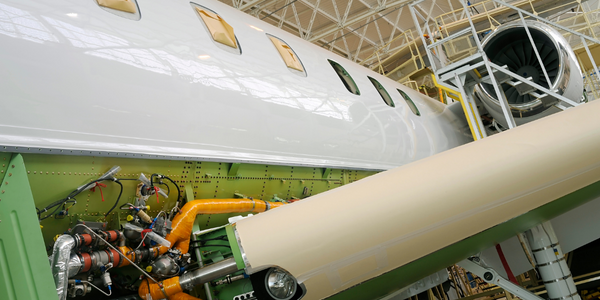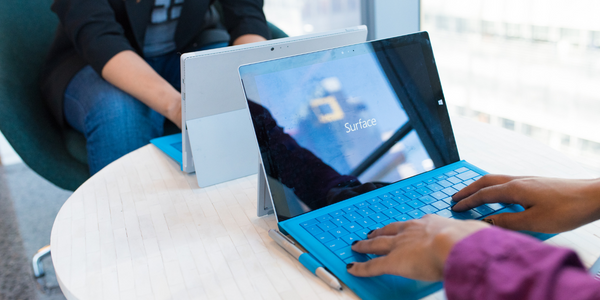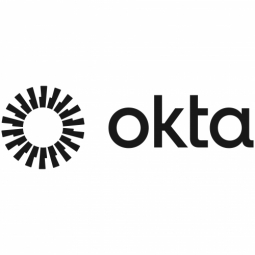Customer Company Size
Large Corporate
Country
- United States
Product
- Okta
- Okta Integration Network
- Okta Lifecycle Management
Tech Stack
- Cloud-based Solutions
- Identity Management
- Single Sign-On
Implementation Scale
- Enterprise-wide Deployment
Impact Metrics
- Productivity Improvements
- Cost Savings
- Customer Satisfaction
Technology Category
- Cybersecurity & Privacy - Identity & Authentication Management
- Platform as a Service (PaaS) - Connectivity Platforms
Applicable Functions
- Business Operation
- Human Resources
Use Cases
- Remote Collaboration
Services
- Cloud Planning, Design & Implementation Services
- System Integration
About The Customer
Live Nation Entertainment is the world's largest live music company, organizing 30,000 concerts and 100 festivals annually, and selling over half a billion tickets each year through Ticketmaster. With a workforce of 15,000 employees spread across various time zones and locations, the company is a leader in music, entertainment, and technology. Live Nation is committed to staying at the forefront of technological advancements to support its mission of producing music, selling tickets, and securing sponsorships. The company operates with a tech-first philosophy, aiming to provide its employees with the best tools to ensure smooth operations and enhance productivity. As part of this approach, Live Nation embarked on a bold initiative to move entirely to the cloud, eliminating on-premise servers and focusing on cloud-based solutions to streamline operations and improve efficiency.
The Challenge
Live Nation Entertainment faced the challenge of managing a large, global workforce with diverse needs for accessing applications and tools. The company had a cumbersome system of multiple portals that were not user-friendly, especially for employees working remotely or on mobile devices. This complexity hindered productivity and made it difficult to deploy new applications efficiently. Additionally, Live Nation was transitioning to a 100% cloud-based infrastructure, which required a robust identity management solution that could integrate seamlessly with a wide range of applications and work on any device. The company needed a solution that would simplify access, enhance security, and support a mobile workforce, while also facilitating quick and efficient onboarding of new employees.
The Solution
Live Nation Entertainment chose Okta as its identity management solution to address its challenges. Okta provided a fully cloud-based platform that allowed Live Nation to streamline access to all its applications and tools, facilitating remote and mobile work. The Okta Integration Network enabled seamless integration of various applications, offering Single Sign-On capabilities that simplified user access. This solution was critical for Live Nation's mobile workforce, allowing employees to access applications from any device, anywhere. Okta's platform also supported efficient onboarding and offboarding processes, ensuring new employees received immediate access to necessary tools and applications, while securely deactivating access for departing employees. The implementation of Okta was quick and straightforward, with Live Nation deploying the solution within days and completing a major rollout in four to five months. This transition allowed the IT team to shift focus from maintaining infrastructure to partnering with the business to add direct value.
Operational Impact
Quantitative Benefit

Case Study missing?
Start adding your own!
Register with your work email and create a new case study profile for your business.
Related Case Studies.

Case Study
Premium Appliance Producer Innovates with Internet of Everything
Sub-Zero faced the largest product launch in the company’s history:It wanted to launch 60 new products as scheduled while simultaneously opening a new “greenfield” production facility, yet still adhering to stringent quality requirements and manage issues from new supply-chain partners. A the same time, it wanted to increase staff productivity time and collaboration while reducing travel and costs.

Case Study
Aerospace & Defense Case Study Airbus
For the development of its new wide-body aircraft, Airbus needed to ensure quality and consistency across all internal and external stakeholders. Airbus had many challenges including a very aggressive development schedule and the need to ramp up production quickly to satisfy their delivery commitments. The lack of communication extended design time and introduced errors that drove up costs.

Case Study
Porsche Announces Augmented Reality at Scale, Powered by Atheer
The usual practice for car repairs at a Porsche car dealership is to have a factory representative or regional engineer visit to help diagnose the problem, and sometimes a faulty assembly is shipped back to company HQ for damage analysis. All that costs time and money for customers and dealers alike.

Case Study
Covisint Improves Mitsubishi's Collaboration With Its Supply Chain
Mitsubishi sought to improve supplier relationships on a global basis and to offer an easy-to-use solution to interact with them. In August 2004, Mitsubishi selected Covisint’s platform to help improve sharing of information and collaborative business processes with its global suppliers. Covisint enabled Mitsubishi to provide its suppliers with immediate access to information and applications to obtain more collaborative working relationships

Case Study
Beer Distributor Improves Security, Shipping Capacity, and Service
Enjoy a beer on the upper Texas Gulf Coast, and you can probably thank Del Papa Distributing Company. Founded more than a century ago, the company today distributes 10 million cases of beer annually, from 30 suppliers. More than 375 employees work at headquarters in Texas City and two other distribution centers. The family-owned company has a simple aim: to be a great beer distribution company. So when Del Papa set out to build a new 27-acre headquarters, company leaders thought about how technology could contribute to its greatness. “We wanted the new distribution center to have a single, secure network we could use for physical security, communications, collaboration, and even monitoring the temperature of our inventory,” says Steve Holtsclaw, Manager of Information Systems for Del Papa. The old building, in contrast, had separate networks for voice, data, video, and physical security. Separate networks were expensive and got in the way of business. For example, personnel could only monitor video surveillance cameras from certain workstations. And Wi-Fi performance in the warehouse area wasn’t reliable enough for the voice-activated order-picking system.

Case Study
Aruba Cuts the Core with Microsoft Lync
Aruba's IT team purchased a telephony system which is going end-of-life and this would become a bottleneck to growth. While they began investigating modern PBX systems, they were also considering put their own Wi-Fi infrastructure to work by adopting a Unified Communications and Collaboration solution.







